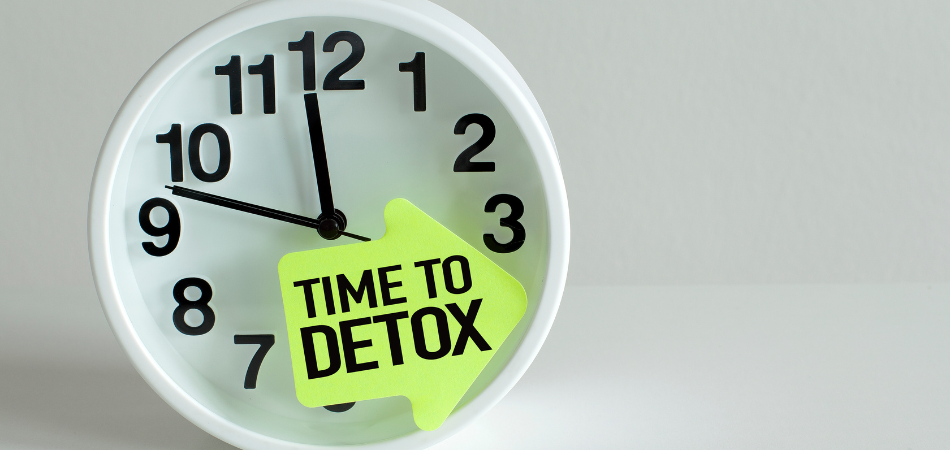Alcohol detox
Detoxing from alcohol can be one of the most important decisions you ever make. It can mean the difference between struggling with alcohol addiction for the rest of your days and living a healthy, happy life. Detox takes time, patience, and often professional help but it can be a huge turning point in your life.
This page will discuss all you need to know about alcohol detox, including what happens during detox, how to detox safely, and the benefits of successful detox. So if you or someone you love is ready to get sober, read on!

What happens during alcohol detox?
Alcohol detox is the process of allowing the body to rid itself of alcohol. This can be done through abstaining from drinking or by tapering off slowly under medical supervision at a professional detox clinic.
Alcohol is a depressant that works by slowing down the central nervous system. When you drink, it affects your brain chemistry by releasing a neurotransmitter called GABA which makes you feel calm and relaxed. In addition to GABA, alcohol also inhibits other neurotransmitters that are responsible for things like anxiety and stress.
As your body becomes dependent on alcohol, it starts to adapt and change to accommodate the presence of alcohol. This is why people who abuse alcohol often need to drink more and more to get the same effect.
Withdrawing from alcohol suddenly can cause your neurotransmitter levels to become unbalanced which leads to withdrawal symptoms. The severity of these symptoms will depend on how much and how often you have been drinking.
Withdrawal symptoms can start as early as a few hours after your last drink. If you have an alcohol addiction, you have probably experienced them the day after a big drinking session (or even every morning.) Essentially there are two ways to alleviate alcohol detox symptoms: start drinking again or complete detox so that your systems rebalance.
Alcohol withdrawal symptoms
Different people will have varying degrees of withdrawal symptoms from alcohol. For some people, these will be mild and manageable while for others they can be severe and even life-threatening.
The most common withdrawal symptoms of alcohol include:
- Anxiety
- Agitation
- Tremors
- Sweating
- Nausea and vomiting
- Diarrhoea
- Headache
- Fatigue
- Insomnia or disturbed sleep patterns
- Irritability
- Depression
- Mood swings
For some people, the alcohol withdrawal symptoms can be more severe and even fatal. The name given to the most severe symptoms is Delirium Tremens (DTs) which can include:
- High fever
- Hallucinations
- Seizures
- Detachment from reality
- Intense confusion
- Agitation
- Increased heart rate and blood pressure

DTs usually start between forty-eight and seventy-two hours after your last drink but can sometimes occur earlier. They peak around days three and four and then start to improve. However, they can sometimes go on for weeks or even months in some cases.
How to detox from alcohol safely
If you only drink a little, it is safe to stop drinking on your own. For example, if you only drink at weekends, you can cut down gradually over a few weeks until you are not drinking at all. Many people quit alcohol as a New Year’s Resolution or for “Dry January” and as long as you are not drinking too much, this is usually safe to do.
However, if you have been drinking heavily for a long time or if you have developed alcohol dependence, detoxing from alcohol without medical assistance can be extremely unpleasant and even life-threatening. This is why it is vital that you get the correct professional support if you are thinking about quitting drinking and that you do not attempt to stop on your own.
At Liberty House, we have helped many people complete their detox from alcohol in a safe and comfortable environment. Our alcohol detox programme is provided as inpatient treatment. While the detox usually takes seven to ten days, detox is given alongside holistic therapies to help you focus on recovery in the long run and offer a support network. We medically monitor our clients throughout the process and provide around-the-clock care and monitoring. Get in touch with us today to find out more.
What medication is used to detox from alcohol?
If you are at risk of severe alcohol withdrawal symptoms, you will need to undergo medically assisted detox. This is when you are given alcohol withdrawal medication to help alleviate the symptoms and make them more manageable. Clinically proven to be the safest way to withdraw from alcohol, it reduces both the physical and mental symptoms and helps to safeguard against life-threatening side effects such as alcoholic seizures and Delirium Tremens.
Many alcohol detox medications can be addictive themselves so it is important that they are only used for a short period of time and that you are closely monitored by medical staff.
On admission to Liberty House, you will first undergo a full assessment by our team of experts. This will help us to understand your unique situation and develop a tailored detox plan that is right for you. We will then administer any medication required during detox and provide 24-hour care and support throughout the process.
Alcohol withdrawal timeline
No two people are the same and so the experience of detoxing from alcohol will vary from person to person. However, there are some general things that you can expect to happen during the process:
- Day one: On the first day of detox, you will likely feel anxious and restless. You may also experience shaking, nausea and vomiting.
- Days two to three: The second and third days are usually when withdrawal symptoms peak. You may have hallucinations, seizures and a high fever. Your heart rate and blood pressure will also be raised.
- Days four to five: From day four onwards, you should start to feel more like yourself again. However, you may still experience some symptoms such as anxiety and insomnia.
- Day six and after: By the end of the week, most people will be feeling much better. However, some may continue to experience mild symptoms for a few weeks or even months after detox.
The benefits of alcohol detox on the body and mind
Detoxing from alcohol can have some amazing benefits on both your physical and mental health. Most importantly, detoxing alcohol will help to reduce the risk of developing serious health problems such as liver disease, cancer and heart disease. It can also help to improve your sleep, increase your energy levels and improve your mood.
In terms of mental and emotional health, completing a detox from alcohol can help to reduce anxiety and depression, improve your memory and concentration and make you feel more positive about life. You will be able to focus more on your work, hobbies and relationships and overall feel happier and more fulfilled.
What to do next
If you are struggling with alcohol addiction, it is important to seek professional help as soon as possible.
At Liberty House, every effort will be made to ensure you are safe and comfortable throughout the detox process. We have staff available 24/7 to ensure any concerns are promptly addressed. Our qualified doctors will frequently review your detox medication regime to ensure the physical side effects of withdrawing from alcohol are being adequately managed and you will also receive counselling and psychosocial support throughout.
The benefits of undergoing medical detox with us are:
- You will receive a comprehensive medical assessment and medication to manage alcohol withdrawal symptoms
- You will be continually monitored throughout your detox to ensure your safety and comfort
- You will receive nutritious freshly prepared meals and additional vitamins to build you up physically
- You will be in a healing-focused environment, away from the temptation of alcohol
- Through our family support programme, your loved ones will benefit from knowing you in good hands
For more information about our alcohol detox services or to apply for the detox alcoholic programme at Liberty House, get in contact with us today.

